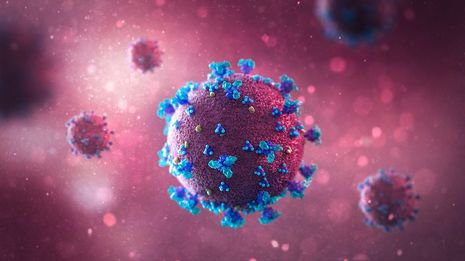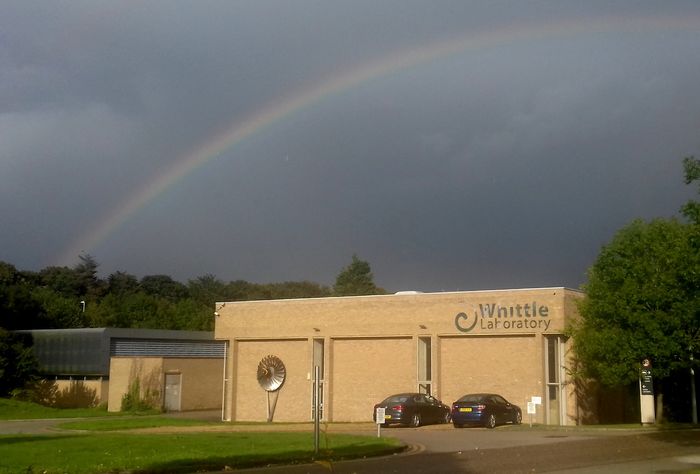Will a COVID-19 vaccine end the pandemic?
Eilidh Rivers sheds light on some of the challenges a newly developed vaccine will face, and considers whether a vaccine is enough to reverse the effects of the pandemic.

The COVID-19 pandemic has turned our lives upside down, and vaccines are being heralded as our ticket back to normality. Progress seems very positive; seven vaccines are currently in Phase 3 clinical trials, with an eighth due to start in early September. It looks likely that a vaccine will be available in record-breaking time. Controversially, Russia and China have allowed vaccination programmes to begin before large scale clinical trials. The FDA commissioner has suggested that the US government could approve a vaccine before the completion of Phase 3 trials, a move that may have come from increased pressure due to the upcoming election. The UK government is also trying to speed up access to a vaccine. Having bought millions of doses of as-yet unapproved vaccines, they have proposed measures to allow the Medicines and Healthcare products Regulatory Agency to give temporary authorisation to a vaccine before it is approved by the European Medical Agency. This follows the fast approval of the COVID-19 Oxford Vaccine Trial back in March. But will a COVID-19 vaccine be truly effective at ending the pandemic, and will it begin to reverse the social and economic problems the pandemic has caused?
COVID-19 is a worldwide problem – one that has both demonstrated and harnessed globalisation – and so we need a worldwide solution. This will require international co-operation, which is not necessarily guaranteed. Vaccine nationalism (the hoarding of vaccines stocks by a country) is a real threat to ending this pandemic. It risks the richest countries being able to move on from coronavirus, leaving the poorest to face the ongoing social and economic burden of endemic COVID-19, and widening global inequality. Schemes such as COVAX are trying to ensure fair distribution of resources by increasing vaccine availability worldwide, and currently involve 172 countries. However, the recent confirmation that the USA will not participate has dealt a blow to their efforts.
“[Vaccine nationalism] risks the richest countries being able to move on from coronavirus, leaving the poorest to face the ongoing social and economic burden of endemic COVID-19, and widening global inequality.”
The difficulty in delivering a vaccine may present another challenge. An intra-muscularly injected vaccine that may require two doses (such as the Oxford/Astra-Zeneca vaccine and the Moderna/NIAID vaccine), will be much harder to deliver in countries with weaker public health infrastructure than a one-time nasal vaccine (as discussed in the Introduction to Vaccine Challenges series, published by Varsity). We already see these issues with Cholera vaccines, and we need to make sure they are not repeated with COVID-19.
To have the best chance at ending the pandemic, a vaccine also needs to be as effective as possible. Vaccine efficacy measures how well the vaccine reduces disease and is calculated by comparing instances of the disease in vaccinated and unvaccinated groups. It can vary widely – the measles vaccine has an efficacy above 95%, but the efficacy of influenza vaccines can be below 60%. On top of this, the real-world effectiveness of any vaccine is lower than its calculated efficacy due to a range of factors, such as the strains of the virus in circulation and the immune systems of the vaccinated population. Efficacy studies for the COVID-19 vaccines in development have not yet been completed. However, recent studies into immune responses to COVID-19 show reinfection is possible and suggest natural immunity may wane very quickly; in some patients, antibodies against COVID-19 were no longer detectable after 50 days. This implies the immune response to a vaccine may have limited potency and duration, making the vaccine less effective, and meaning regular booster vaccines may be required, similar to the current strategy against tetanus. Additionally, there is a chance mutation of the COVID-19 virus could make a vaccine less effective and we may need to alter vaccines on a regular basis, as we do for influenza. However, there is evidence to suggest that the mutation rate of COVID-19 will be slower than that of influenza as the enzyme that replicates the COVID-19 genetic material is able to proof-read in the process, potentially recognising and removing such mutations.
Although a vaccine would only be approved once it has been shown to have at least some effect, the current focus is very much on developing a safe vaccine as quickly as possible, rather than a maximally effective one. There are concerns that this race to develop a vaccine will result in a weaker end product, which – according to The Lancet – could worsen the effects of the pandemic. Once the financial incentive of developing one of the first vaccines is gone, there will be less impetus to invest in new and more effective vaccines. This is not fear-mongering – the industry is motivated by revenues: in 2000, manufacturers spent 3.5 times more on the development of pharmaceuticals than vaccines.
“There are concerns that this race to develop a vaccine will result in a weaker end product, which could worsen the effects of the pandemic.”
Finally, fears about a vaccine’s safety would severely limit its ability to end the pandemic. Reduced timescales may understandably lead the public to believe that the normal rigorous standards have not been met. This would lead to reduced vaccine coverage, jeopardising herd immunity. A YouGov study has already shown that 16% of Britons would “definitely” or “probably” not get vaccinated against COVID-19. Furthermore, the trialling of new vaccine types that have never been approved (such as the Moderna/NIAID vaccine, an RNA vaccine) could further reduce the public’s faith in its safety. This doesn’t just matter on an individual level; high levels of uptake are crucial to ensure the protection of the whole population, especially if a vaccine has a low efficacy. Computer simulations have shown that to reduce virus spread when the R number is 2.5, a vaccine with 80% efficacy would need 60% coverage to end an “ongoing pandemic”, but the lower the efficacy, the higher the vaccination coverage required. Essentially, if a vaccine is approved, its success will be dependent on vaccinating as many people as possible – we need simple and clear messaging to the public that the vaccine is safe.
Vaccination is highly important, but the licencing of a vaccine is not the only hurdle and is definitely not the finishing line. A vaccine can only end the pandemic if it is adequately effective, available worldwide, and administered widely. We must work until all these conditions are met.
 News / Judge Business School advisor resigns over Epstein and Andrew links18 February 2026
News / Judge Business School advisor resigns over Epstein and Andrew links18 February 2026 News / Gov grants £36m to Cambridge supercomputer17 February 2026
News / Gov grants £36m to Cambridge supercomputer17 February 2026 News / Hundreds of Cambridge academics demand vote on fate of vet course20 February 2026
News / Hundreds of Cambridge academics demand vote on fate of vet course20 February 2026 News / CUCA members attend Reform rally in London20 February 2026
News / CUCA members attend Reform rally in London20 February 2026 News / Union speakers condemn ‘hateful’ Katie Hopkins speech14 February 2026
News / Union speakers condemn ‘hateful’ Katie Hopkins speech14 February 2026










